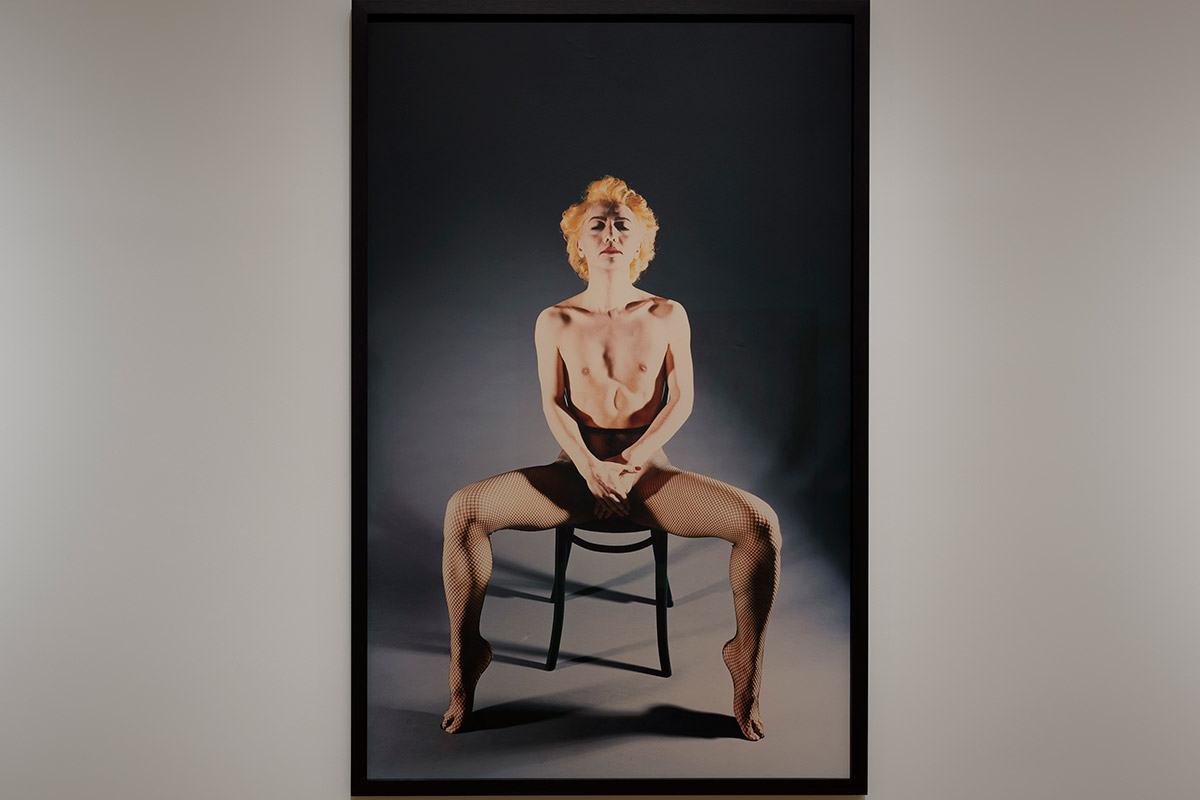No Face, No Case
Students deconstruct portraiture at a new exhibition at the Cooley.
No Face, No Case, Portraiture’s Breaking, a new exhibition of photography, painting, and sculpture at the Reed College Douglas F. Cooley Memorial Art Gallery, explores and expands the boundaries of portraiture as an artistic tradition. It is the first exhibition at the Cooley since the gallery closed its doors as a result of the COVID-19 pandemic, and the first at the Cooley ever researched and organized by a class of Reed student curators.
Many of the works on display were the first of their kind to depict queer subjects and subjects of color “in such a radical way,” according to gallery director Stephanie Snyder ’91, the John and Anne Hauberg Director and Curator of the Cooley. For the artists included in No Face, No Case, what matters is not just who or what we are looking at, but also how we are seeing, especially when the work of art may not seem like a portrait at all.
As the representation of the likeness of an individual, portraiture has a long history as a form of currency, dating back to court portraits of royalty and aristocrats. The exhibition interrogates this tradition and the power relationships involved, breaking down the expectations of what a portrait should be or who it should portray.
Featuring photographs by the likes of Catherine Opie, Yasumasa Morimura, and Laura Aguilar, the exhibition asks what kinds of relationships viewers might form with the works of art that undermine the systems of state power and surveillance alluded to in the title, No Face, No Case.
“We wanted works in the exhibition to speak to a sense of deeply close encounter while not reinforcing positions of power and dominance,” Snyder said. “When you encounter Laura Aguilar’s intimate photographs, for example, you encounter multiple perspectives at once—perspectives on power and history and the future, perhaps, too.”
The show was organized by a group of faculty and student curators who took part in ART 353, Making an Exhibition, taught by Snyder, Prof. William Diebold, and Prof. Kris Cohen.
Prof. Diebold had been hoping to teach a course like this ever since he arrived at Reed. “I wanted the students to be able to do everything,” he says.
Working over Zoom for the course of the semester, the students and professors conceived, researched, and designed an exhibition influenced by the challenges of the COVID-19 pandemic, the national reckoning with anti-Black racism, and being isolated from each other in the digital learning environment.
“I had never been in a class before that so heavily centered collective, creative practice,” says Aliza Phillips ’21.
Victoria Wolf-Llop ’21 added that by addressing themes of representation and power, No Face, No Case explores “what kind of exhibition is worth doing during a pandemic and in the context of Black Lives Matter at a time when questioning accessibility and diversity in all kinds of institutions has been so crucial.”
The exhibition is curated from a group of over fifty works of contemporary art donated to Reed College by alumnus Peter Norton ’65, who has demonstrated a commitment to collecting works by LGBTQ+ and BIPOC artists since he began his career as an art collector during the AIDS crisis and the culture wars in the early 1990s. This donation provided the opportunity for this experiential learning experience.
No Face, No Case was “truly rewarding and bodes well for future opportunities,” says Snyder, who hopes this exhibition will be the first of many opportunities for students to have the hands-on experience of working with art objects in years to come.
The show is part of the Time-Based Art festival hosted by the Portland Institute for Contemporary Art, and runs until December 5, 2021. The gallery is open to individuals and small groups by appointment only.
Tags: Academics, Campus Life, Cool Projects, Diversity/Equity/Inclusion, Editor's Picks, Giving Back to Reed, Institutional
